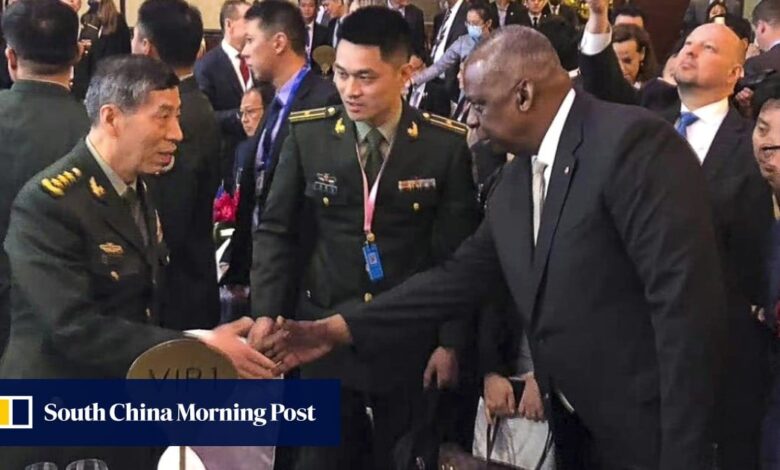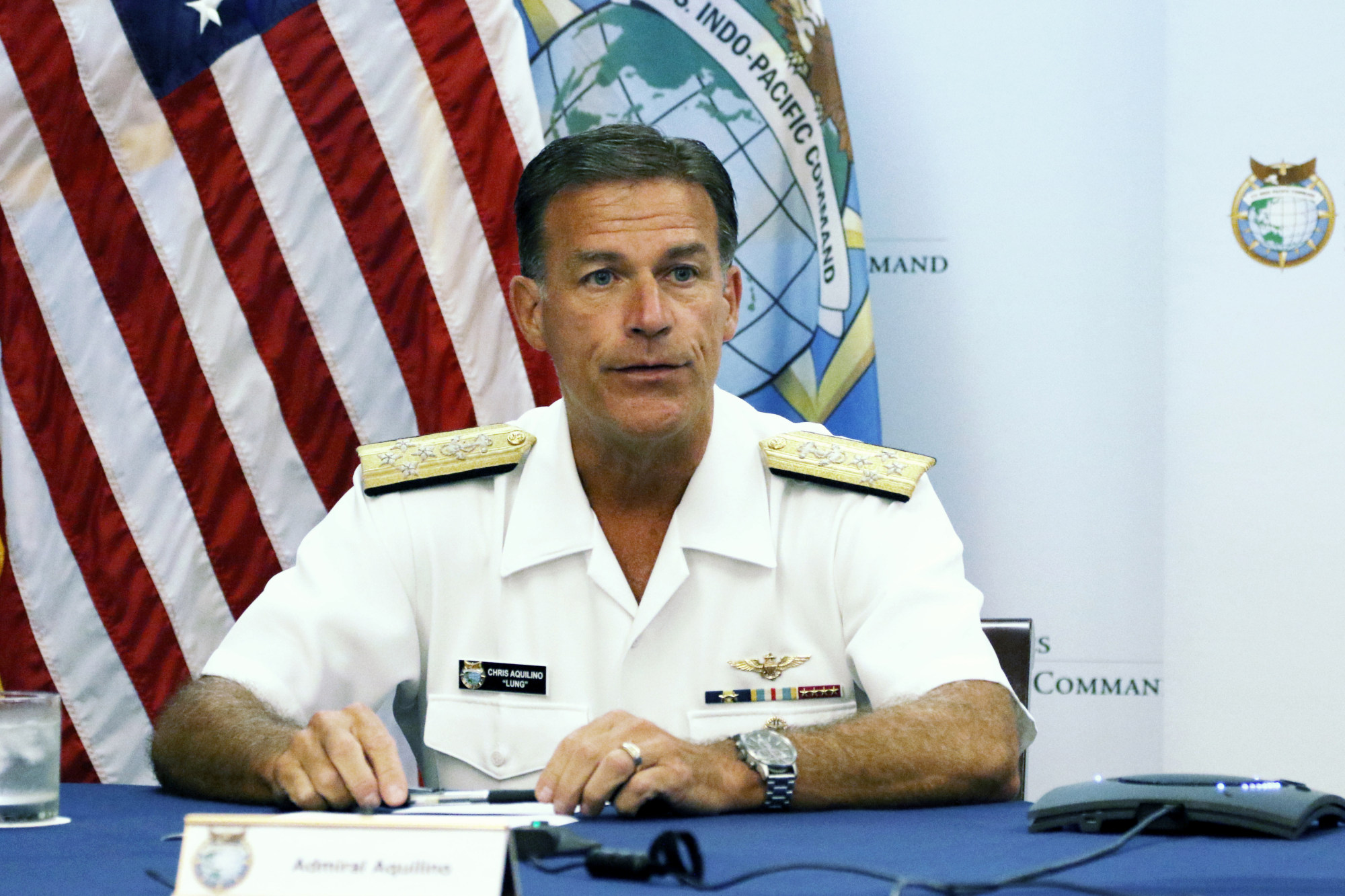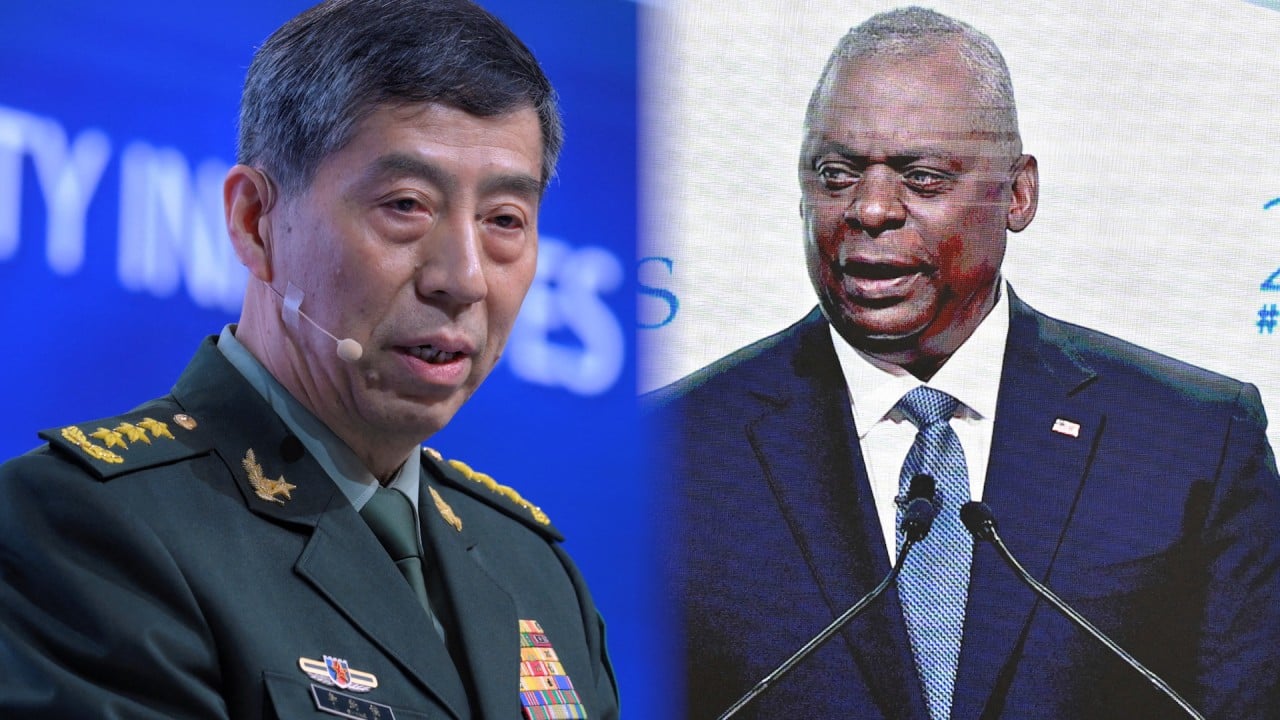‘Substantive’ talks between US, Chinese militaries must resume, Pentagon official says

[ad_1]
A senior Pentagon official said communication between the Chinese and US militaries had seen “some new openings” but called for “substantive” talks between defence leaders to manage potential crises.
Ely Ratner, assistant secretary of defence for Indo-Pacific security affairs, said on Thursday that the Pentagon would continue to seek open lines of communication with the PLA, as direct talks have largely been frozen over the past year.
Addressing the current state of military relations between the countries, Ratner said: “We are not where we need to be and not where we should be.”
Beijing “has declined multiple invitations from the department for opportunities to communicate directly with Secretary Austin, the chairman of the Joint Chiefs of Staff and other department officials,” Ratner said, referring to US Defence Secretary Lloyd Austin. “And we will continue to call for substantive conversations between our senior most defence officials.”
After then US House speaker Nancy Pelosi visited Taiwan in August 2022, Beijing cut off three main military communication channels with Washington. When Secretary of State Antony Blinken visited Beijing in June, he proposed restoring those channels, but Chinese leader Xi Jinping rejected the offer.
The last time the two defence chiefs had direct interactions was in November in Cambodia.
“We have seen some new openings,” Ratner said, including a meeting between Admiral John Aquilino, the head of US Indo-Pacific Command, and a senior PLA official at a conference in Fiji in August.
“But as it relates to our dialogues that we have built both at the political and military level, as well as at the operational level, those are not back up and running yet,” Ratner said.
Chinese military snubbed invite to defence conference, says US admiral
Chinese military snubbed invite to defence conference, says US admiral
China has denied being uncooperative and incommunicative. Wu Qian, the defence ministry spokesman, said on September 28 that Chinese and US militaries have maintained candid and effective communication through diplomatic channels.
In the past few months, at least four senior US government officials have visited China.
While acknowledging that diplomatic engagement can support the management of tensions, Ratner said, “I don’t think those are a substitute for direct communications between military leadership and potentially between military operators.”
“We should remain concerned that in the event of a crisis, that we don’t have the habits of communication, we don’t have the relationships and we don’t have the kinds of open channels … that’s really why we think this is so important.”

“And this is about potential crises, but also talking about issues like space and cyber new domains, China’s nuclear modernisation … that also create potential opportunities for escalation that we ought to be talking about,” he said.
Ratner said the PLA’s “coercive and risky” behaviours in the Taiwan Strait and the East and South China seas could “increase the likelihood of an accident that could spiral into crisis or conflict”.
But he said such a conflict was “neither imminent nor inevitable”.
“We believe deterrence is real and strong, and we’re doing everything we can to keep it that way,” he said.
China still silent on US request for defence chief talks: senior official
China still silent on US request for defence chief talks: senior official
Discussing Taiwan policy, Ratner said the US was focused on trying to “get the balance right” between deterrence and destabilisation.
“Sometimes the PRC accuses the United States of supporting Taiwan independence, and nothing could be further from the truth,” he said. “Our efforts are focused on maintaining deterrence and not engaging in the kinds of activities that you’re describing that would be a lurch toward an important change in the status quo that could be potentially destabilising.”
The Pentagon is “prepared for all contingencies” for next year’s Taiwan presidential election, he added.
Also speaking on Thursday, Rick Waters – who until June was the State Department’s top China policy official – said he was sceptical about how crucial military-to-military communications actually are.
“It is true that with the Speaker Pelosi’s visit last year, [the military] channels were frozen. They’re gradually reopening quietly, but I’ve never really viewed [those] channels as the ones that will play a much of a role,” said Waters, now managing director of Eurasia Group’s China practice.
Looking back at the collision of Chinese and US military aircraft over Hainan Island in 2001, Waters said: “It was clear that the only channels that will ever exist in a crisis will likely be the ones approved by the party, after they have deliberated the principles of their response, and those will probably be foreign ministry channels or maybe back channels, but the PLA is very seldom the channel for resolution or management of a severe crisis like that.”
The same pattern played out after spy balloon incident in February, he said, when the primary communication was between senior State Department officials and then ambassador Qin Gang, as well as other diplomatic channels.
[ad_2]
Source link






